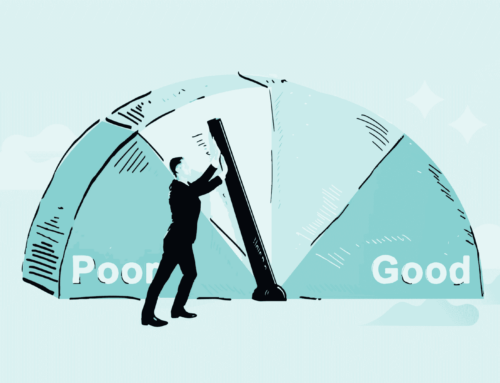Maybe you found yourself relying too much on your credit card accounts or are struggling to combat your overspending habits. Don’t worry, we’ve all been there. Consequently, it’s common to think about cancelling our credit cards as a solution to these stressful and frustrating habits. But most importantly, it’s essential to consider how cancelling a credit card may affect your credit score. Even though your spending habits may be affecting your credit score too, cancelling your credit card may have similar effects. Let’s learn more.
Should you cancel your credit card?
It’s important to first ask yourself the question: Do you really need to cancel your credit card? The first question to ask yourself before cancelling a card is: Do you really need to cancel it? Having the option available to use credit in case of an emergency is extremely useful. It provides you with peace of mind in the case of any financial trouble or medical emergency. In addition, having an available line of credit on a card with no balance always helps your credit score.
Regardless, sometimes we may need to cancel a credit card if we find that our spending habits are becoming impulsive. In addition, you may have a credit card that you don’t use that charges an annual fee. In both of these cases, cancelling your credit card may be an option for you.
Cancelling your credit card will affect your:
Credit history
Your credit history is a factor used to calculate your credit score. And often, longer credit history with accounts in good standing will help benefit your credit score the most.
So, let’s say you have a credit card that is five years old and another that is only a year old. If you cancel your credit card with a five-year credit history, you are removing the opportunity to build your credit history further on that account. For example, if your credit card is five years old, in five years’ time it will be ten years old. For that reason, it’s important to take the age of your credit card into consideration before cancelling.
Credit utilization rate
Your credit utilization ratio is a metric used to measure how much money you owe to your credit card, versus your total credit limit. Basically, your lenders like to see a credit utilization ratio of no more than 30% of your total credit limit. So, if you have a total credit limit of $3000, they prefer you not to have spent any more than $900. Having a lower credit utilization rate suggests to lenders that you can keep up with your payments and are not over-leveraging your credit accounts.
If you cancel a credit card, you are lowering your total credit limit, which will higher your credit utilization rate. Because of this, it can then affect your credit score. So, if you are cancelling a credit card account with a higher credit limit, or owe a large balance on other credit accounts, the effect on your credit score may be more substantial.
Here’s the good news
Even though your credit utilization ratio and credit history are essential factors used to calculate your credit score, you can still cancel a credit card the right way (where it won’t drastically affect your score). In addition, even though if you cancel your credit card the wrong way without considering all factors, there are many other things you can do while using your credit card that will make for a more significant drop. For example, missing two or more monthly payments will drastically impact your credit score, or never making a payment at all. So if you can at least make the minimum payment on your credit card, it’s better than missing your payments completely. So if you do decide to cancel your credit card, make sure to follow our tips in the next section to ensure you’re doing it the right way.
Six steps to take if you choose to close your credit account
If you decide to cancel your credit card, make sure to follow these steps to ensure that you are correctly closing your account. This way, you can help prevent a significant impact on your credit score.
- Make sure you claim any credit card rewards before you close your account.
- Try to pay off all outstanding balances on all credit card accounts before cancelling. If this isn’t possible, try to pay off as much as possible.
Contact your credit card company and confirm your balance before cancelling. - Send a letter to your credit card company to confirm your account has been closed. Request a letter back for confirmation of your account status and balance.
- Check your credit reports with Equifax & TransUnion about 30 to 45 days after cancellation. Then, make sure that the account reports that it was closed by the cardholder and that your balance is $0.
- If the information is incorrect, dispute your credit reports with Equifax & TransUnion.
- Make sure to dispose of your credit card correctly. Cut it up and ensure it can’t be duplicated or that the card number or chip cannot be read.
The bottom line
If you decide to cancel your credit card, it’s essential to make sure to consider all factors first. Cancelling your credit card may affect your credit score in a number of ways. Especially if you cancel your oldest credit card, as you are removing a long and valuable credit history from your credit report. In addition, cancelling your credit card may higher your credit utilization ratio, which may negatively impact your credit score too. So, if you consider all factors and still decide to cancel your credit card, make sure you follow all our recommended steps first. There are many ways you can improve your credit score and improve your spending habits with your MyMarble account too. Make sure to sign in to your portal and check it out.






